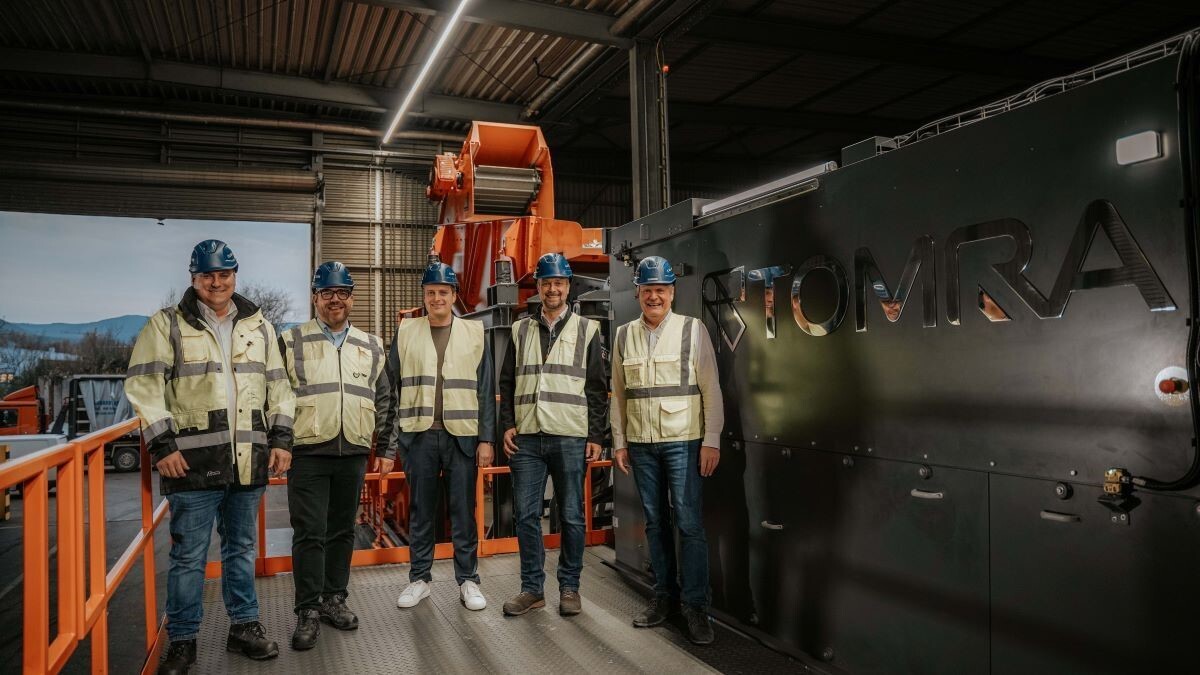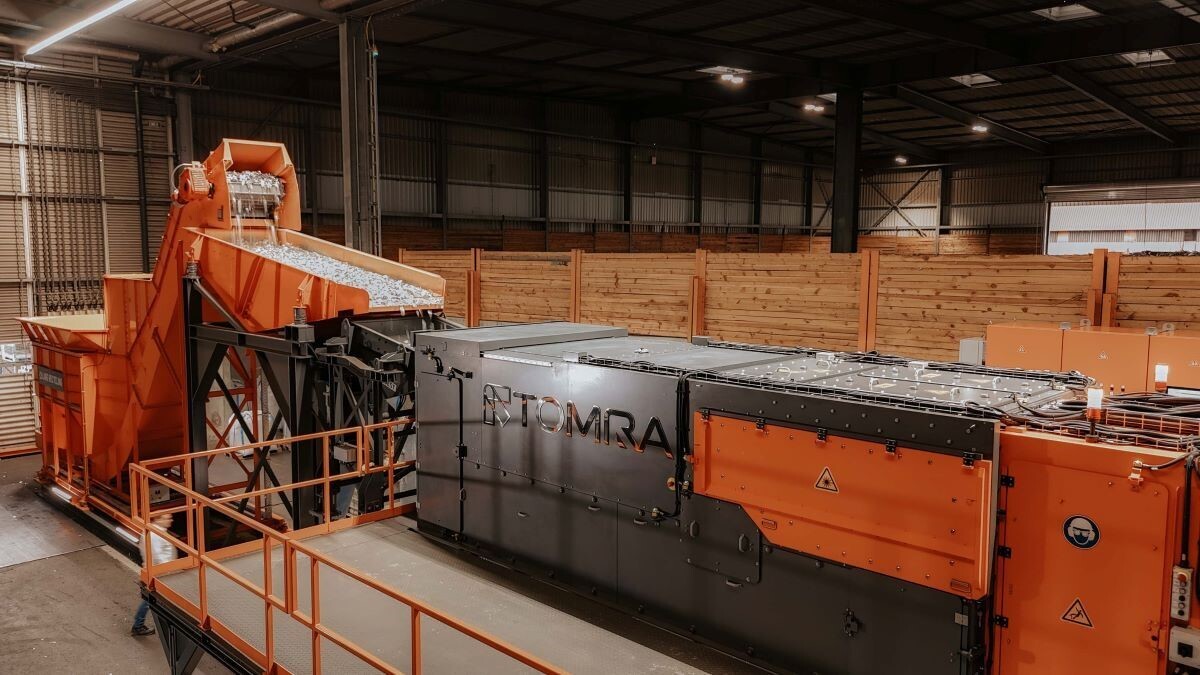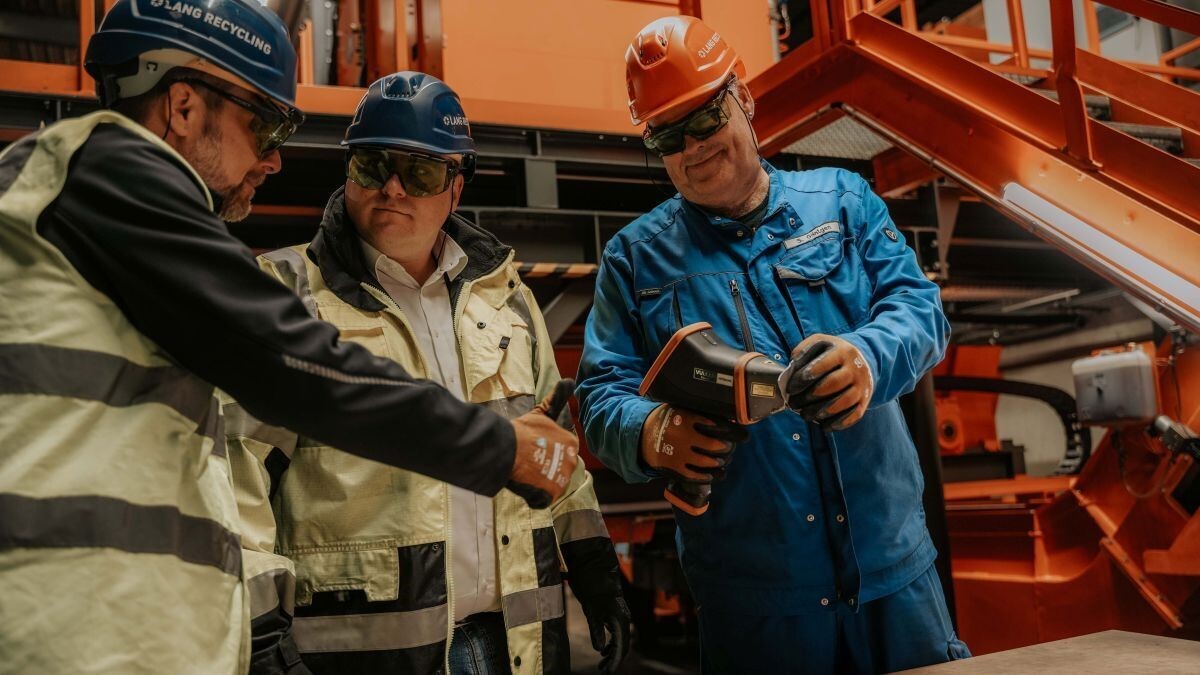

German metal recycling company Gerhard Lang Recycling GmbH has integrated an Autosort Pulse unit from TOMRA Recycling at its metals sorting facility in southwestern Germany. This installation is part of a research project supported by the German Federal Ministry for Economic Affairs and Climate Action.

Image Source- TOMRA website
Previously, the Gerhard Lang Recycling team sold the mixed material to aluminium manufacturers immediately after shredding. With the installation of the Autosort Pulse, the company can now efficiently separate 5xxx and 6xxx series aluminium scrap by alloy family.
Curious to know about such groundbreaking technologies? Explore AL Circle's latest content on technological advancements and innovations!
KANAL project
The KANAL project, short for Kreislaufsystem für funktionales Aluminium-Neuschrottrecycling aus der Automobilproduktion mittels LIPS (translated as Circular System for Functional Aluminum Scrap Recycling from Automotive Production Using LIBS), aims to close the loop on aluminium scrap from automotive manufacturing.
Maximilian Lang, managing director at Gerhard Lang Recycling, said, "With the integration of Autosort Pulse, we are able to process a throughput of around 4-7 tons per hour and achieve exceptionally high purity levels, exceeding 95 per cent and potentially reaching 97 per cent. As a result, our material is suitable for use in the production of aluminium without downgrading. We can now sell the recovered materials to leading aluminium manufacturers and recyclers for direct integration into the production of new aluminium alloys. What's more, we are considering the potential to explore additional applications for other aluminium alloys."

Gerhard Lang Recycling GmbH has joined forces with Pforzheim University of Applied Sciences, TOMRA Recycling, and engineers from Jeanvré for this €3.9 million ($4.08 million) initiative. The project utilises TOMRA’s advanced laser-induced plasma spectroscopy (LIBS) technology, with Gerhard Lang Recycling GmbH as a research and field validation partner.
The process of recycling
The plant processes stamping scrap generated during the production of car parts and panels. Approximately 30 to 50 per cent of the aluminium used in this manufacturing stage becomes scrap, consisting of a mix of 5xxx series (high-magnesium) and 6xxx series (low-magnesium) aluminium wrought alloys.
"This is a very exciting project for Tomra to be involved in, and we are delighted that Gerhard Lang Recycling GmbH is reaping the benefits that our Autosort Pulse can offer. With the European Union's commitment to climate neutrality by 2050, as outlined in the Green Deal, and the specific target of a 55 per cent reduction in greenhouse gas emissions by 2030 under the 'Fit for 55' initiative, there has never been a more crucial time to explore ways of making the aluminium supply chain more sustainable," added Frank van de Winkel, market strategy manager – metal at Tomra Recycling.

Image Source- TOMRA website
Upon arrival at Gerhard Lang Recycling's metals sorting plant in Gaggenau, Germany, the material is first shredded before undergoing a multistage magnetic separation process to remove ferrous metals. The remaining nonferrous material is then processed through the Autosort Pulse, which uses advanced dynamic laser detection to analyse the elemental composition of each piece, allowing precise alloy separation.
Highlight of object singulation
TOMRA highlights that object singulation enables the unit to accurately identify and separate overlapping and adjacent materials, optimising yield and efficiency in the sorting process. Its 3D object scanning technology detects an object's shape, height, and position, determining the optimal shooting point for the Dynamic LIBS laser.
The laser features two focus modes: multipoint, which scans a line across the sample, and single-point, which drills into a specific spot for precise detection. According to the company, TOMRA developed the latter mode, which has demonstrated superior performance in tests.
"Our Autosort Pulse system empowers aluminium manufacturers to enhance the utilisation of recycled aluminium in their production processes. This innovative solution unlocks access to previously untapped scrap sources, enabling the recovery of high-quality, 'alloy-true' recycled aluminium. By preventing downcycling and conserving material value, we are closing another gap towards full material circularity. The successful implementation of our technology at Gerhard Lang Recycling GmbH's plant demonstrates the feasibility of closed-loop recycling for production scrap and paves the way for a less carbon-intensive aluminium supply chain," added Frank van de Winkel.
Before adopting the new aluminium sorting process, Gerhard Lang Recycling consulted with TOMRA’s metals experts. The project's development spanned several years, with initial discussions starting in 2018.



Responses






